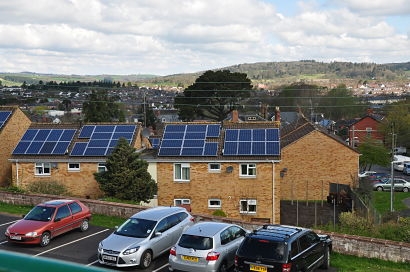
By the 1st January 2020 qualifying suppliers with more than 150,000 retail customers will be legally required to offer terms of payment for the surplus power that new solar homes put on the grid. Smaller suppliers are also able to offer a Smart Export Guarantee on a voluntary basis.
Many elements in the SEG represent a hard-fought win for the STA and industry:
The door has been kept open for power exported from co-located battery storage to also be remunerated
The mechanism is simple, and enables suppliers to structure tariffs how they see best
Installation standards will be safeguarded through a requirement that systems be demonstrated to suppliers that they are MCS certified or equivalent
However, crucial to the success of the SEG policy will be 'meaningful and innovative' offers. The STA wants to see a competitive market develop to purchase power from smart, solar homes at a fair market price. It will be watching the market very closely for developments and ranking all offers via its online Smart Export Guarantee league table, so that new solar households can easily understand which companies are making the best offers. Currently only Octopus Energy, on a voluntary basis, has a tariff for solar exports, for which it is offering a fair market rate.
“We will be watching the market like a hawk to see if competitive offers come forward that properly value the power that smart solar homes can contribute to the decarbonising electricity grid” said STA Director of Advocacy and New Markets Léonie Greene. “The net zero energy transition we need cannot happen without the active engagement of the public so it is vital that, as very small players, they are treated fairly in a very big system. It is a requirement under EU law to offer fair, market-rate payment for small-scale solar power exports and government has decided to leave this to a market that it does not trust to supply power at a fair price. Nevertheless we are hopeful that there are innovative electricity supply companies who understand the importance of incentivising homeowners who want to install solar, battery storage and EV charging as we move towards a smart energy system. Barriers still need to be resolved and it is incumbent on government to remove these to encourage as thriving and competitive a market as possible, including for aggregators.”
Ben Gatley, Head of Energy Trading at Social Energy said that the Smart Export Guarantee base rate announcement has been eagerly awaited by everyone who has recently adopted solar energy, and those who are considering adopting it and that the new Smart Export Guarantee will be welcomed, but only because it's better than nothing, considering the fact that they have been forced to accept an all-time-low IRR of just 0.17 percent since the end of the feed-in tariff (FIT). It's nothing to celebrate, especially when some solar adopters will have earned up to 15% IRR during peak times.
"For some this announcement is irrelevant, however" Mr Gatley continued. "Generally speaking, people who adopt solar energy are savvy and since the end of the FIT a number of solar installers have seen as many as 85 percent of those who are buying new solar, choosing to install a smart battery system via Social Energy, which offers a market leading 5.6p per kWh export tariff, plus other smart features enabling customers to save up to £656 per year on their energy bills, earning a 7.5 percent IRR. For this forward-thinking group of people, today's announcement won't affect them, and as more solar adopters embrace smart battery storage, even less will be so dependent on the Smart Export Guarantee. My message today for anyone considering adopting solar is to not be put off by the SEG base rate, as there are better ways to guarantee a return on your investment than simply selling your energy back to the grid - smart battery storage is the future and is ready to be embraced."
Government has indicated that whilst no minimum floor price has been set it will be ‘actively monitoring the development on this market’ and will consider setting arrangements if further intervention is required, such as if generators are not able ‘to access a competitive range of export tariff options’. It has cited the current trials and one existing domestic offer linked to the wholesale price as an encouraging signal that suppliers can offer ‘meaningful and competitive offerings’. The STA would expect offers below this to be indicative of an uncompetitive, insubstantial market which requires intervention. Innovative supplier Octopus Energy have already taken steps towards meeting the requirements of the SEG with the first truly ‘smart’ export tariff offer, which includes both a simple fixed payment for all surplus power exported to the grid at a fair market rate of 5.5p/kWh, and a ‘smart’ tariff, which will enable homes with solar and battery storage that can control when they export power to the grid to potentially benefit from even higher rates because they can export at ‘peak’ times when power is more expensive.
However, important barriers still need to be resolved in order for a fully competitive market to develop and there are no comprehensive offers yet beyond the domestic market. Since April 2019, small-scale commercial and community energy generators have been left with inadequate routes to market.
For additional information:

